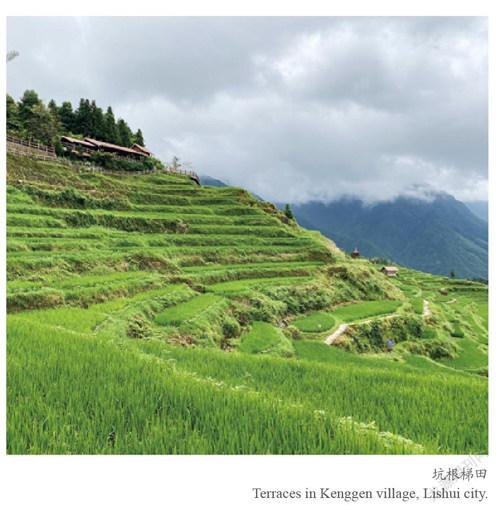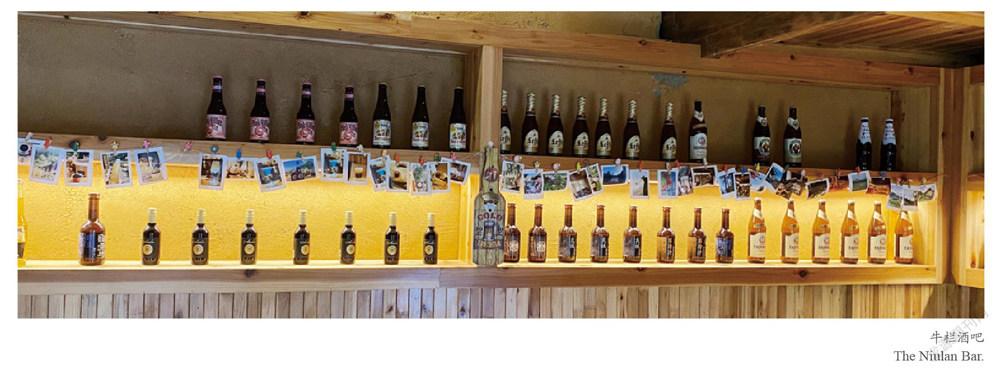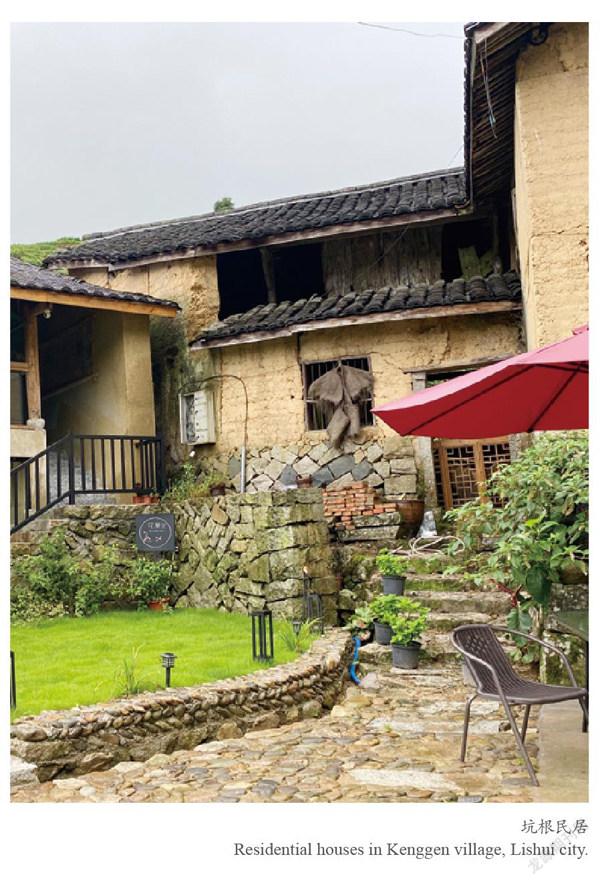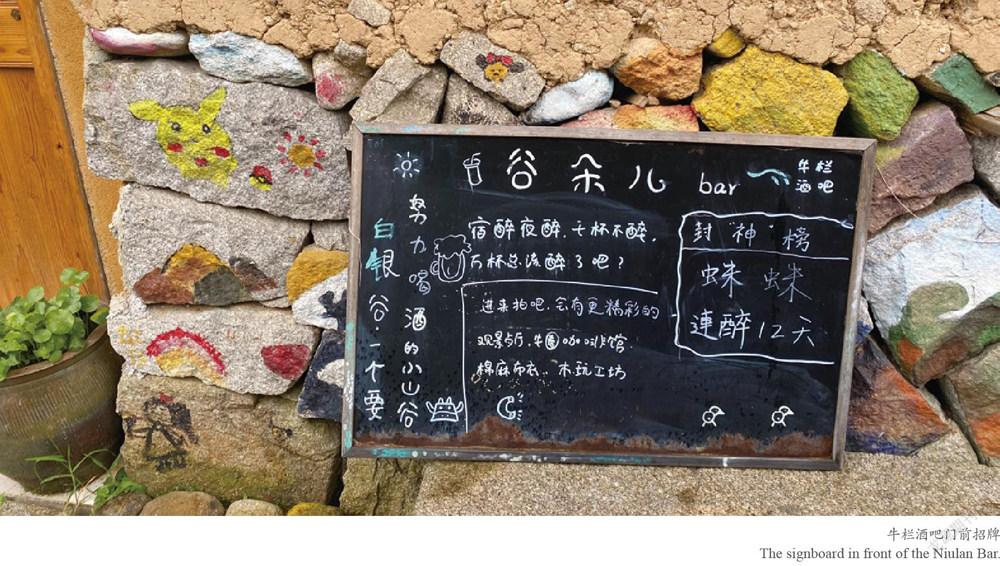银色村庄
2022-02-24俞天立
俞天立







当我反应过来的时候,人已经在坑根村了。
那么,我失去记忆的时候,脚步是怎么抵达它的一石一木的呢?仿佛这是一个神谕。在云和县这个因银矿而声名鹊起的小村庄,看到的一切都是银闪闪的,这里保存着明朝矿工们垒石起木、建造石屋、开垦梯田的记忆。它们许是不知不觉移植到了我的记忆中吧。
停下,聆听鸟雀嘤嘤、溪水潺潺。古老的村庄在晨雾中苏醒。村道,铺满细密的石子;瓦舍,多见古旧的木檩;老树,沾了一脸的露水。古村的一切都是神秘的,处处透着明朝的气息。甚至,似乎还可以从青石板、木格窗上望见身披蓑衣的苏轼、穿着葛麻的陶潜。晨光熹微,樟树叶上的光斑随风跃动。一群七八岁的孩童,丝毫不受外人叨扰,无忧无虑地嬉戏;坐在石墩上抽烟的老农,聊着家长里短。
眼前的这片民宅黄墙黑瓦,半隐在层叠的梯田和蓊郁的树林中,犹如美人娇羞的侧脸。这让人泛起一种感觉:自己不是访客,恰似在此地久居多年的隐士。一座老宅的土墙上,贴着几张红纸,记着今年春醮时村民们的公益捐赠账目。听村民说,一年一度的春醮在正月十五举行,祈求的是风调雨顺、五谷丰登。那是戏班、戏社入村表演的时节,将一年的农忙化作一日的狂欢。所有的辛劳都在锣鼓中消解,在咿咿呀呀的戏腔里风流云散。
我抚看着其中一张红纸,上面写着 “水果5样、利群烟5包、白年糕5根、鸡3只……”点滴捐赠,只为赓续传统的民俗活动。另外一张则是“春醮助社殿收入账”,上写 “某某捐50元、100元、150元……” 一长串名字,覆盖了整张纸,金额总计超万元。我不解,向一位老伯探问。“今年春醮和往年不一样。山上在修一个明清时建的观音庙,是个文物呢。你看到的,那是村民随缘捐助的善款。”老伯慈眉善目,微笑着说。这是村里的文化盛事,我想他是引以为荣的。
说话间,忽见旁边一座老宅正在整修,建筑风格有些与众不同,我探头过去看。他说:“那家在造药铺,用来解决村民买药难。”在仅有170来户人家的坑根村,文化礼堂、图书室、医务室、金融服务所、公厕等惠民设施一应俱全,这里的村民是有福的。
一场夜雨来过,村子空气格外清新。我穿过蜿蜒的村道,惹来三两声狗吠。“狗吠深巷里,鸡鸣桑树颠。户庭无尘杂,虚室有余闲。”村落是湿漉漉的,诗歌是素淡的,湿漉漉的村落与素淡的古诗很搭。如此外婆一样慈祥的村庄,让人心里踏实,不必在意身在何处,走向何方,又将对上谁的目光。
抬头间,一间牛栏酒吧引起了我的兴趣。酒吧并没有人,只是放着悠扬的轻音乐。主人串门去了,收山货去了,还是到陌上为女儿采野花去了?这并不重要,重要的是他留下了音乐,留下了遐想。可以遐想,他曾经把一头老牛拴在这里,让它摇着尾巴吃着青草,那牛是他娶媳妇的本钱;可以遐想,在一个清晨,老牛病了,他心急火燎地请来兽医为它诊断;可以遐想,在一个雨天,为了供女儿读书,他忍痛将老牛牵去集市卖了。老牛来了,又走了。他来了,又走了。
而现在我来了,也即将要走的。短暂的邂逅,至少让思绪慢下来,静心澄虑,告诉自己不必在意微信上未处理的消息,不必理会格式化的人情往来,不必忧虑明天和意外哪个先来。所有的思绪停留在古风老韵的酒瓶上。这一架子的美酒,三百六十度环绕着我;这满屋子的音乐,也三百六十度环绕着我。主人也许是深思熟虑后,打算与往日作别,才生出将牛栏改造成酒吧的念头的。我忽然想起,爷爷活着的时候,也有过一个朴素的愿望——挖一个自己的酒窖。这琳琅满目的酒瓶,难道不是寄托着酒吧主人朴素的愿望么?我叫不上酒的品牌,也说不出音乐的名字,但重要的是我来过,遐想过,在这里洗过澡,心灵的澡。
离开酒吧,我继续行走,对星散在山水间的民居作着民俗文化的观察。
一位老农身着青布衣,翘着二郎腿,在厨房门口吃着面。被面香吸引,我便上他家去看看。厨房薪柴林立,墙面晦暗,只有他是明亮的。我注意到土灶头竟然有四个,这在农村也不常见。
“大爷,您家四个土灶啊?”
“是啊。三个烧猪食,一个是烧饭的。”他憨厚地笑着,没拿我当外人。
灶头前,贴着灶王爷的像。他皴裂粗糙的手捧着一碗青菜肉丝面,热气蒸得额头汗涔涔的。我痴痴闻着,有种若隐若现的柴火味,那是熟悉的农家醇香呵。“我这里随便,快到里面看看。”我隨了他穿过天井,来到正厅。
“你看,这是我两个儿子和明星的合影。”他有些得意地对着照片说。
他主动介绍起来:“这是模特徐冲和他的孩子,这个是钟丽缇的女儿。”我对明星有些眼盲,旁边一张照片C位上的人倒是眼熟。
“浙江卫视主持人沈涛,你知道吧?他在我家住了两天呢!”其实大爷不说,我也知道。照片里,他的两个儿子一左一右,穿着羽绒服,站在沈涛的两侧。哥俩一个咧嘴憨笑,一个表情庄重,都和我差不多年纪。
“许多年前的吧?”
“有七八年了。浙江卫视节目组拍真人秀,来了我家。”他兴奋地比划着,仿佛往日重现。这对一户农家而言无疑是高光时刻,用大幅照片呈现在正堂,也属常情。
我问起他的家庭情况。“我啊,两个儿子,一个女儿。两个儿子都在外面打工。疫情一来,厂里生意淡了!我一个种田老头,腿脚不方便,还指望着他们呢。你看,这老房子旧了,墙壁都裂开了。好在政府给我家刷了外墙,又装了窗,才像个家呐!”我连连称是,看得出他是实笃笃的满足。
阳光从院子的天井漏下,驱散了廊柱后的晦暗,一切都安然起来。木柱上的牛腿似有神,历经百年风雨而不朽,活成了一尊时光的雕塑。阳光是轻柔的,院落是舒展的,鸡鸭是悠闲的。“山气日夕佳,飞鸟相与还。”远方的梯田起了一层轻雾,与金灿灿的稻子、绿油油的蔬菜缠绕在一起。这样的景致容易让人想起王维的辋川。这时候,你就需要一本书,周华诚的《春山慢》就很好,蒋瞰的《山居莫干》也好。如果什么都不做,也是自然而虔诚的,可以听听禽鸟的对话,溪流的小调。
我坐在台阶上,享受着又思索着,闲等日头近午。忽然,从侧屋里伸出来一个俏皮的脑袋。“爸,有客人来了?”那是一个女孩,约莫二十岁。老人应了一声,她便打量了一下我。也许是习惯了外人的叨扰,她并未显得特别好奇。
“這懒丫头……睡觉要到大中午,书也不看!”老人嗔怪起女儿来。女儿也不恼,返身回了小屋。
“开学推迟了吧?”
“是啊!学校去不了,她就知道在家瞎混日子……”老人无奈地叹气,却又分明饱含了对儿女的期许。
“现在大儿子抱上了两个孙子,二儿子也有个孙女。我老了,半只脚踏进棺材了,就指望这个女儿能读出来,找份好工作!”他望着客厅里高悬的祖先像,这番话更像是对列祖列宗说的。
老汉的愿望是朴素的。牛栏酒吧主人的追求是朴素的。同样,村民们做春醮许下的愿景也是朴素的。尽管疫情对乡村家庭或多或少带来了影响和改变,但乡民们显然并没有失去对美好生活的冀盼。不求大富大贵,惟求平安和乐。世事难料,人生如寄,然而乡村乡土的调适能力令我吃惊。也许是这里的山水田园风物有着惊人的自我更新的能力,才造就了农人的坚忍与平和。
我看着老人悠悠然点起了一支烟,一缕烟雾徐徐而袅袅,仿佛平凡日子里的人间烟火。
每一个村庄,都有我们在寻找的东西。在坑根村,我也找到了,那就是,美好的生活从朴素的愿望开始。这个银色的小山村,有梦,有未来。
Village of Silver
By Yu Tianli
Before I could realize what had happened, I already arrived at the Kenggen village.
How did my foot carry me to this place then? As I tried to recollect how things started in the first place, a thought suddenly struck me: maybe it was an oracle. Looking around in the little village, a place located in Yunhe county, Lishui city and well-known for its silver ore, you could find everything in sight was of the color silver. Historical traces of Ming dynasty (1368-1644) miners who had built houses from rocks and trees and opened up terraced fields are vividly preserved here — so vividly that they seemed to have left a mark on my mind without me noticing.
Wandering around the ancient village, I paused and listened to chirping birds and murmuring creeks. Every day when it awakes to the morning mist, this place appears extremely delightful with its trails carpeted by fine gravels, time-worn wooden houses and old trees freshly wet with dew. It is all covered in mystery, easily reminding visitors of the Ming dynasty. There, children of seven or eight years old are commonly seen playing care free, and old farmers always smoke and chitchat with one another sitting on stones.
All of a sudden, a house came into my view, with its yellowish walls and black tiles. It was half hidden in terrace fields and lush-green trees, delicate and beautiful like a sweet lady’s side face. It made me feel that I was a hermit who had been living here for quite some time instead of a visitor. I also noticed on the wall were several pieces of red paper with some hand-written donation accounts on them. It is a tradition that all villagers donate for the Chinese New Year celebration which takes place on the fifteenth day of the first month of lunar year. Yet this year, according to a proud senior folk, people have also donated for the restoration of a Guanyin temple located on the hill, which was first built between Ming and Qing (1616-1911) dynasties and hence a cultural relic.
In the middle of our conversation, I happened to catch sight of an old house under construction, which stood out in architectural style. “It is a pharmacy,” an elderly man told me. With such well-equipped infrastructure including cultural halls, libraries, clinics, banks and public toilets, the Kenggen village of only over 170 households obviously treats its people kind.
The air was especially fresh from the rain last night. With great ease, I walked across some wet meandering village roads and ran into a bar which was transformed from a cattle pen. No one was there, only some light music playing on. The whereabouts of the owner were not known, but it didn’t matter at all. We could always unleash our imagination: maybe the owner raised cattle here, which were then sold for money against the owner’s will. After that, the owner himself was gone as well.
And I would also be gone in a short while. But now, at least in this very moment, I could slow my pace and ease my mind by looking at the bountiful good wines stored on the shelves and listening to the music which I could not name.
I left the bar to resume my walk and observation about the folk culture of this village. There was an old man in an indigo fabric gown, sitting cross-legged while eating noodles by the door of his kitchen. Drawn by the inviting aroma of the noodles, I decided to step inside his house and take a look.
Beside numerous firewood, dark and gloomy walls, four hearths were there in the kitchen, which was quite uncommon in rural households. “You’ve got four hearths there, that’s impressive.” I exclaimed. “Very true. Three for making pig feed, one for cooking our own meals,” explained the old man with an amiable smile. “Please feel free and comfortable here. Do come inside and have a look.” I followed him across the courtyard into the living room. “These are pictures of my two sons with some superstars,” he introduced for me proudly.
Then I asked about his family. “I have two sons and a daughter. Both boys are working outside the hometown. The factory has been making less money due to the epidemic, yet this limping old farmer at home has to count on them no matter what. Look at this shabby house, the cracks in the wall. Luckily, the government people repainted the outer walls and installed windows for my house, which feels like home now.”
The sun softly shone down through the commodious courtyard, dispelling the gloomy darkness behind the pillars in the corridor and letting in a peaceful mood. From a distance, terrace fields looked foggy, and were lovely together with golden-yellow rice paddies and green vegetables. This idyllic view made one crave the company of a book. Seated idle on the stairs, I was savoring the moment while thinking until it was almost noon. Suddenly a girl’s voice naughtily raised from a side room, asking if there was a guest in the house. She was the old man’s daughter, about 20 years old. Getting a positive answer from her dad, the girl checked me out for a bit with a little curiosity: perhaps she had already grown accustomed to having strangers at home.
“No school these days, this lazy girl of mine knows nothing but fooling around at home,” sighed the old man, yet in a hopeful tone. “Now I have two grandsons from my elder son, and a granddaughter from my younger son. I myself am a very old man and have got one foot in the grave, and my only hope is for my daughter to graduate with a proper degree and get a decent job.” While saying these, the old man looked high up at the portraits of his ancestors, whom he seemed to be actually talking to.
Surely the hope of the old man was simple enough, like those of the bar owner and kind-hearted villagers. Although the epidemic has hit and changed the village and its dwellers more or less, the locals’ well-wishing nature stays unchanged. They are such a resilient and peaceful crowd, perhaps thanks to the natural surroundings which are capable of self-renewing in an amazing speed.
Leisurely, the old man lit up a cigarette and a wisp of its smoke slowly rose, like the smoke coming from the chimney of every household on every ordinary day. Each village offers something we have been looking for. A beautiful life starts with a simple wish is what I have learned here in Kenggen, a mountain village of silver, dream and future.
